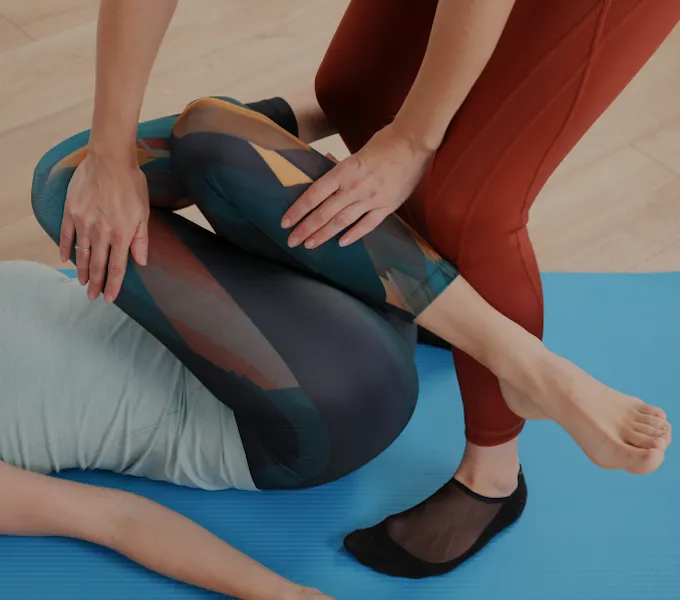
I'm Potty Training in My Twenties & It's Life-Changing
How could I have reached my twenties and still not be potty trained? Let me clarify. For the majority of my life, I have been using a toilet and, for the majority of my life, I thought I was using it correctly. Well, it turns out that only the first part of that statement is true.
About five months ago, after some rather uncomfortable and unexplainable discomfort that felt something like an extreme UTI, I went running to the OB/GYN. My doctor told me that the fix to my problems wasn’t a matter of taking antibiotics or switching up my birth control. Pelvic floor physical therapy, she said, was the best possible treatment. She told me it might take some time to set my bladder straight, but that it could be life-changing.
I left that appointment with a referral slip and a whole list of questions, the first one being: What is the pelvic floor? And the second: What does she mean by “life-changing?” Two weeks later, I checked myself in for my first pelvic floor physical therapy session.
Getting Answers I Wasn’t Expecting
We started by talking not just about my symptoms and other medical issues, but also about things like past traumas. My PT explained how past traumas can create lasting tension in our bodies that can impact everyday functioning, including how we pee.
For many years, I have felt the consistent need to urinate — sometimes even immediately after going to the bathroom. Although this wasn’t my chief complaint when I began pelvic floor PT, it quickly became a topic of discussion as my therapist noticed my frequent trips to the bathroom. She soon informed me that the sensation I was experiencing is called urgency, aka urinary urgency and frequency.
She asked me questions about my water consumption and the frequency of my bathroom visits. I insisted that there was something wrong with my bladder; perhaps it was too small or perhaps it was emptying improperly? Through performing bladder ultrasounds, my therapist proved to me that my bladder was emptying just fine. We determined that this urgency was simply my mind playing tricks on me. I had created a habit that it would now take some effort to break.
Relearning How to Pee
For as long as I can remember, as soon as my butt cheeks hit the toilet seat I engaged my abdominal muscles and squeezed my urine out. By doing this, I mistakenly believed I was releasing every last drop. I don’t know if this behavior was taught to me or if I simply came up with this theory on my own, but it made sense right? My physical therapist informed me that this was actually counterproductive.
By pushing out my urine, I was doing myself a grand disservice and actually contributing to my urgency issues. Through pelvic floor physical therapy, I learned that your pelvic floor muscles should be relaxed when peeing, and that the muscle around my bladder should be pushing the urine out, not my abdominals. By forcing my urine out and engaging the wrong muscles, the communication between my pelvic region and brain had been disrupted.
Now when I experience urgency, I practice urge-suppression exercises like diaphragmatic breathing, mindfulness practices and toe-tapping to distract the focus on my bladder. I even use specific yoga exercises to calm my central nervous system. I also logically evaluate my water consumption (have I actually drunk a bladder’s worth of liquid since last peeing?). And, when I go to the bathroom, I relax and breathe instead of tightening those muscles.
Genuinely Life-Changing Results
Re-potty training has been humbling. That said, I am already experiencing positive results just by relaxing while I pee! I now understand what my OB/GYN meant by life-changing.
I am not claiming that re-learning how to pee has been the most impactful thing to ever happen to me. But I will say this: naming and addressing issues I have been secretly and shamefully struggling with for years, learning about my own body’s anatomy, having a safe place to ask embarrassing questions, feeling supported and validated through my frustrations, and realizing that I don’t have to live in discomfort forever — that has, without question, been incredibly life-changing.




